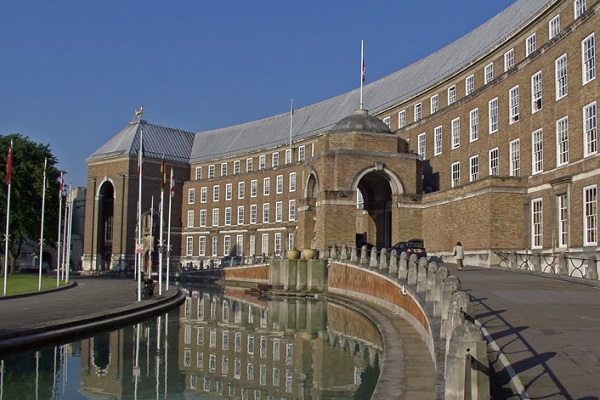BRISTOL City Council is owed a staggering £229 million in unpaid debts, new figures have revealed.
The total amount of outstanding tax, rents, charges and fines is equivalent to every one of the city’s 483,000 residents owing the council £474 – or more than four fifths of the £282m total charged in council tax during the current financial year.
It is also more than ten times the size of the £22m budget shortfall the council is facing, forcing councillors to consider budget cuts.
The unpaid debts to the authority include nearly £52m of council tax that has not been collected.
At the end of the last financial year on March 31, there were £32m in unpaid Clean Air Zone fines and more than £2m each in outstanding penalty charges to motorists for parking tickets and unauthorised use of bus lanes.
A report to September’s strategy and resources policy committee said £18.6m in overpaid housing benefit had not been recovered, while £15.2m of rent and other charges had not been paid by current and former council tenants and leaseholders – up 19% on the previous year.
The authority wrote off £18.7m of debt it concluded it would never recover last year, including £5m of unpaid council tax and £3m in CAZ fines.
The report was released a month after council leader Tony Dyer (Green, Southville) warned that the organisation could go the way of Birmingham and Nottingham councils in effectively being declared bankrupt, if it could not find savings to plug a £22m budget shortfall this year.
Officers warned: “Loss of income could result in reduced services.”
The committee report said council tax arrears stood at £51.9m, up from £50.5m a year earlier.
Officers said collections had not yet returned to pre-pandemic levels and arrears had increased, for reasons including Bristol’s higher than average bills, increased workloads for staff, extra reminder notices and court backlogs.
There is also an “unprecedented” amount of contact from residents reporting changes in their circumstances after recovery activity was paused for 18 months because of the pandemic.
The report said: “Residents in arrears increased from 46% to 49% since April 2023.”
Debts related to temporary accommodation were £3.5m, an increase on the year before because of more households being placed into emergency accommodation.
The report said unpaid general invoices accounted for almost 40% of the debt, at £88.6m, although £30.9m of this was not due until the current financial year, so the figure was likely to reduce.
Officers said the number of invoice payments that had not been made for up to 90 days rose from £30.5m to £46m in the last financial year, although the amount outstanding for over a year fell from £24.4m to £21.6m.
One of the biggest decreases was the outstanding level of uncollected business rates, which had fallen to £14.3m, from £21.8m a year earlier.
The report said: “Cost of living pressures are clearly continuing to impact and we are endeavouring to maximise the support we are able to offer through new initiatives and processes.
“The ‘premium rate’ telephone line for payments has been replaced, making calls to this line more affordable.”
A debt support referral service for people struggling with unmanageable debt, and regular “debt clinics”, including at food banks, were being run.
The report said the council used bailiffs only when there was no other way to recover debts available or where people in debt “are not engaging”.
It said work was being done to ensure collection and recovery was focused towards those who “won’t pay” rather than those who “can’t pay”.
By Adam Postans, Local Democracy Reporting Service


